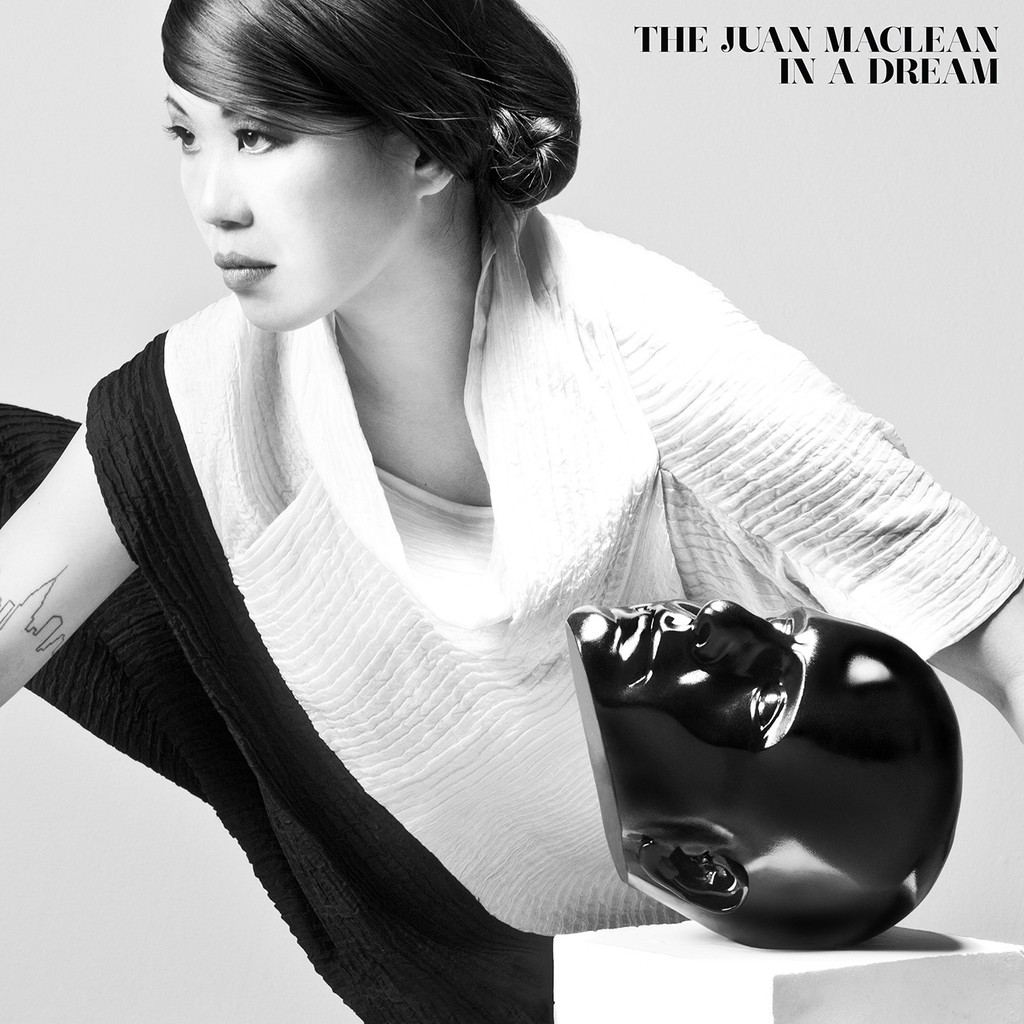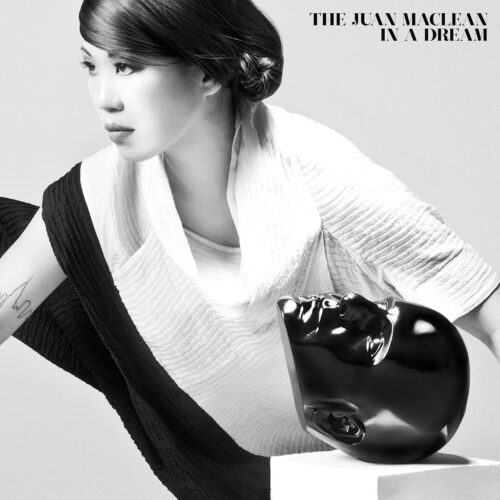Given the emotional warmth, comparative looseness and less programmed feel of this third album by The Juan Maclean, the title of the act’s first LP from 2005, Less Than Human, becomes somewhat interesting. That album, without much of the playful disco-funk that defined second album The Future Will Come and now In A Dream, today sounds almost brutal in its druggy, abrasive dance music. Perhaps songwriter John Maclean has profoundly changed, as his increasingly sweet use of melody, lyrics that often err towards syrupy, and rhythms that extract the most ecstatic aspects of Chicago house and jettison its moodier elements, ensure In A Dream sounds unflinchingly human.
The album was five years in the making, held off as Maclean made mix CDs and singer Nancy Whang concluded her commitments with LCD Soundsystem and worked with Shit Robot amongst others. Its resultant relative softness and vulnerability is almost entirely down to Whang’s more decisive role within the duo – she is the one on the cover after all. A key difference between The Future Will Come and In A Dream is not so much that Whang sings on almost every song, but that fewer effects are employed on her voice. As a result she sounds more natural, and directly involved and affected by the romantic travails she is singing about, in contrast with her cool, electronically enhanced detachment on The Future Will Come.
Maclean’s contribution to this more mournful atmosphere should not be overlooked amid the onslaught of Whang’s talents. His compositions now offer space and a brooding intrigue that marries his signature 80s sheen, sometimes a little plasticky, with a genuine sense of the ‘song’. He embraces structure and progression, as opposed to things like the epic ‘Happy House’ from The Future Will Come, which meandered and explored its two-note refrain and frantic dance floor beat for nearly 13 minutes, before expiring in an exhausted heap.
Opener ‘A Place Called Space’ is as good as anything the duo have ever done, a spectacularly layered synth track adorned with the most moving vocal melody Whang has delivered with The Juan Maclean, its fantastic chorus building and subsiding before exploding at various points, reviving Duran Duran on ‘Save A Prayer’ or even ‘Come Undone’.
The album does not, however, persist with this bounciness. If ‘A Place Called Space’ soars with its infectious energy, the equally elegant ‘Running Back To You’ deals with something more melancholy. Its chugging, rattly one-note bass riff (a low G) is a fairly direct tribute to Funkadelic’s ‘You And Your Folks, Me And My Folks’, the abrasiveness of its foundations balanced by Whang at her floatiest. Indeed, funk is a fairly constant supporting presence in many of these songs – just not the frivolous or even danceable variety. The darker, more disturbed strain of the genre, as defined by George Clinton and co., is regularly hinted at.
Maclean’s own vocals suffer a little in the midst of Whang’s domination. On previous albums, his singing was curiously charming, his low David Byrne-like groan standing proud in its limitation on The Future Will Come, where he was also higher in the mix. Here, his singing sounds reticent and awkward on ‘Charlotte’, the album’s least interesting track by some way, as well as on the also underwhelming ‘Love Stops Here’. That said, Maclean and Whang singing together, and their call-and-response technique, makes for a quirky combination – the gruff mixing with the acrobatic to disarming effect on ‘A Place For Space’ as well as ‘I’ve Waited So Long’.
For all the sensitive production, striking singing and fabulous rhythms, poetry is never likely to be a telling feature of The Juan Maclean. The pair seem strident in their lack of lyrical imagination, the sense being that the emotion Maclean earns through his occasionally blissful, occasionally foreboding tracks, need only be complemented by familiar lyrical ideas and the oft-heard expressions within relationships of any kind, which when sung by Whang are invested with a strange sort of urgency that strips them of cliché.
In A Dream is certainly not going to alienate those who adored The Future Will Come, yet it should be said there are notable points of evolution – most importantly Whang’s prominence and the diversity of Maclean’s songwriting. But it is difficult to place this above The Future Will Come, as despite the brilliance that Whang radiates throughout, there are up to three songs that sap momentum with their lack of vim, and I don’t mean the more sombre tracks, which are a welcome addition to Maclean’s oeuvre. The Future Will Come was a more consistent collection, even if a clutch of The Juan Maclean’s best songs can now be said to come from In A Dream.
<div class="fb-comments" data-href="http://thequietus.com/articles/16439-the-juan-maclean-in-a-dream-review-2” data-width="550">



